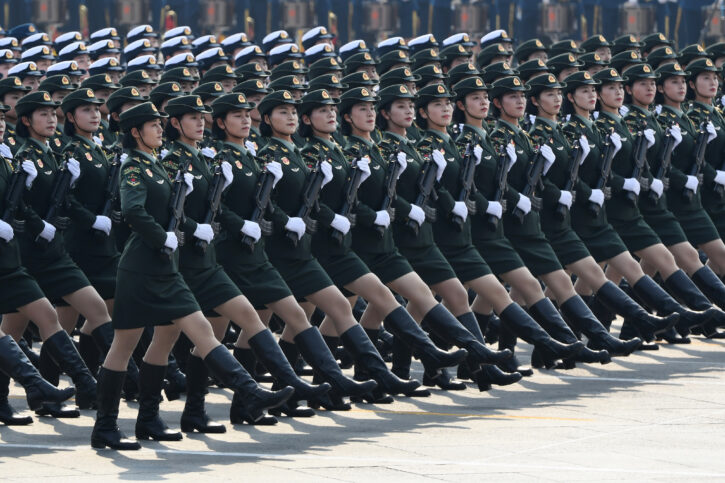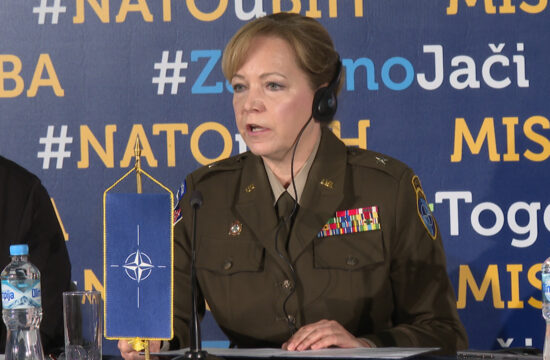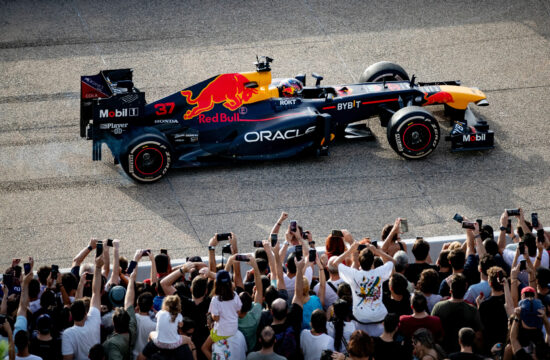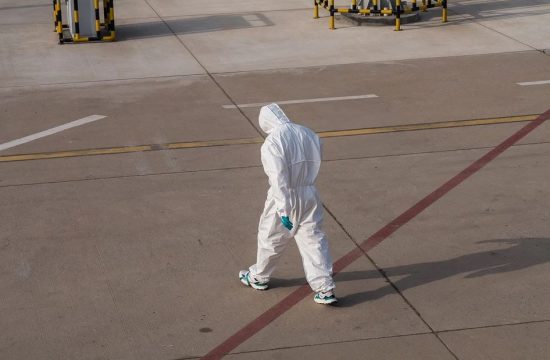
President Xi Jinping emphasized unity, development and strength as he addressed the world on the 70th anniversary of the People's Republic of China on Tuesday, saying: "There is no force that can shake the foundation of this great nation."
Standing in Beijing's Tiananmen Square, where Mao Zedong declared the founding of the PRC on October 1, 1949, Xi added: “Today a socialist China is standing in front the world.”
Earlier, after inspecting troops along Beijing's Chang'an Avenue, Xi presided over a massive military parade showing off some of the world's most advanced weaponry.
About 15,000 personnel, more than 160 aircraft and 580 pieces of weaponry and equipment were involved. Key among those was drone technology – of which Beijing boasts some of the world's best – and advanced missile systems. Helicopters flew national flags across the sky and aircraft flew in formation to create a “70,” in honour of the 70th anniversary.
Xi's address was heavy on nationalist strokes, playing into the long-term Communist Party narrative of lifting China from the “century of humiliation” it suffered under the Qing Dynasty, amid invasion by colonial powers including the United Kingdom and Japan.
Xi pointedly brought up Hong Kong, where anti-government protests have been raging for more than three months, saying that China must remain “committed to the strategy of peaceful reinforcement of one country two systems,” the framework that governs the semi-autonomous Chinese territory.
“We will maintain long-term stability of Hong Kong and Macao, the development of cross-strait relations, and continue to strive for the complete unification of the country,” Xi said.
Hours after Xi's speech, several roads in Hong Kong's Causeway Bay shopping district were blocked as thousands of people joined an unauthorized protest march. And in Wong Tai Sin, across Victoria Harbour in northern Kowloon, police fired tear gas at protesters who blocked traffic and started building barricades.
Image of strength and unity
Beijing has been on high alert for weeks, with a heavy security clampdown including road closures, the banning of flying drones, kites and even racing pigeons, as well as greater restrictions on the already-heavily censored internet.
Beijing is hoping to project an image of national strength and unity.
The parade is also designed to show the capabilities of President Xi, who is the country's most powerful leader since Mao.
But Xi is facing major tests including the ongoing US-China trade war, rising pork prices and his defining Belt and Road Initiative, a hugely ambitious trade and infrastructure mega-project linking China to markets across central Asia, Europe and Africa that is failing to deliver the economic boom it once promised.
Hong Kong unrest threatens to overshadow celebrations
Anti-government protests in Hong Kong are also threatening Xi's image of a man in control. Pro-democracy protesters have planned citywide demonstrations across the city on Tuesday, threatening to overshadow and disrupt Beijing's carefully crafted celebrations.
By 9 a.m. local time, there were already reports of protesters being pepper sprayed by police, and more unrest is expected as demonstrators fan out across the city.
The formal celebrations in Hong Kong began with a flag-raising ceremony typical of official holidays at the city's Golden Bauhania Square, while helicopters bearing Chinese and Hong Kong flags also did a flyby.
But the annual National Day fireworks have been cancelled and a number of key subway stations closed over safety concerns.
The protests, initially over a now-withdrawn extradition bill to mainland China, have grown more violent as the weeks pushed on, evolving to include five demands including universal suffrage.
Hong Kong's embattled leader Carrie Lam attended the celebrations in Beijing alongside 240 other delegates from the city.




